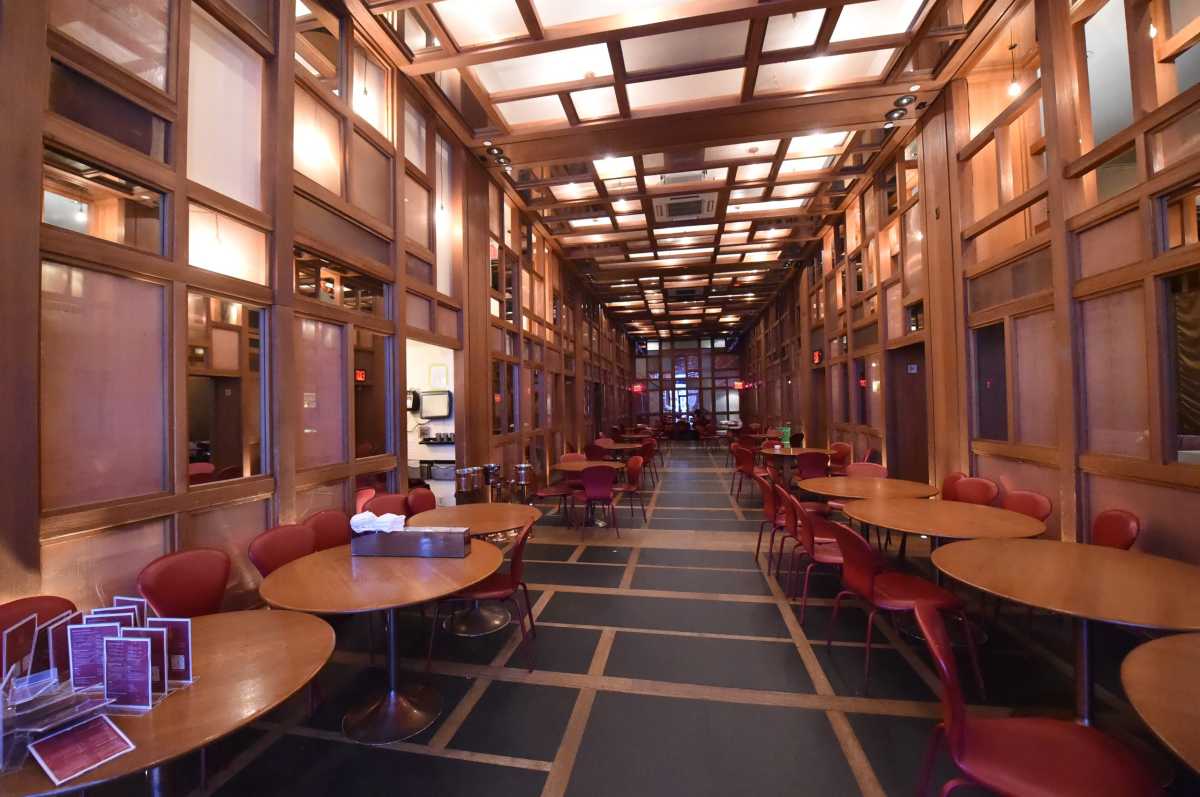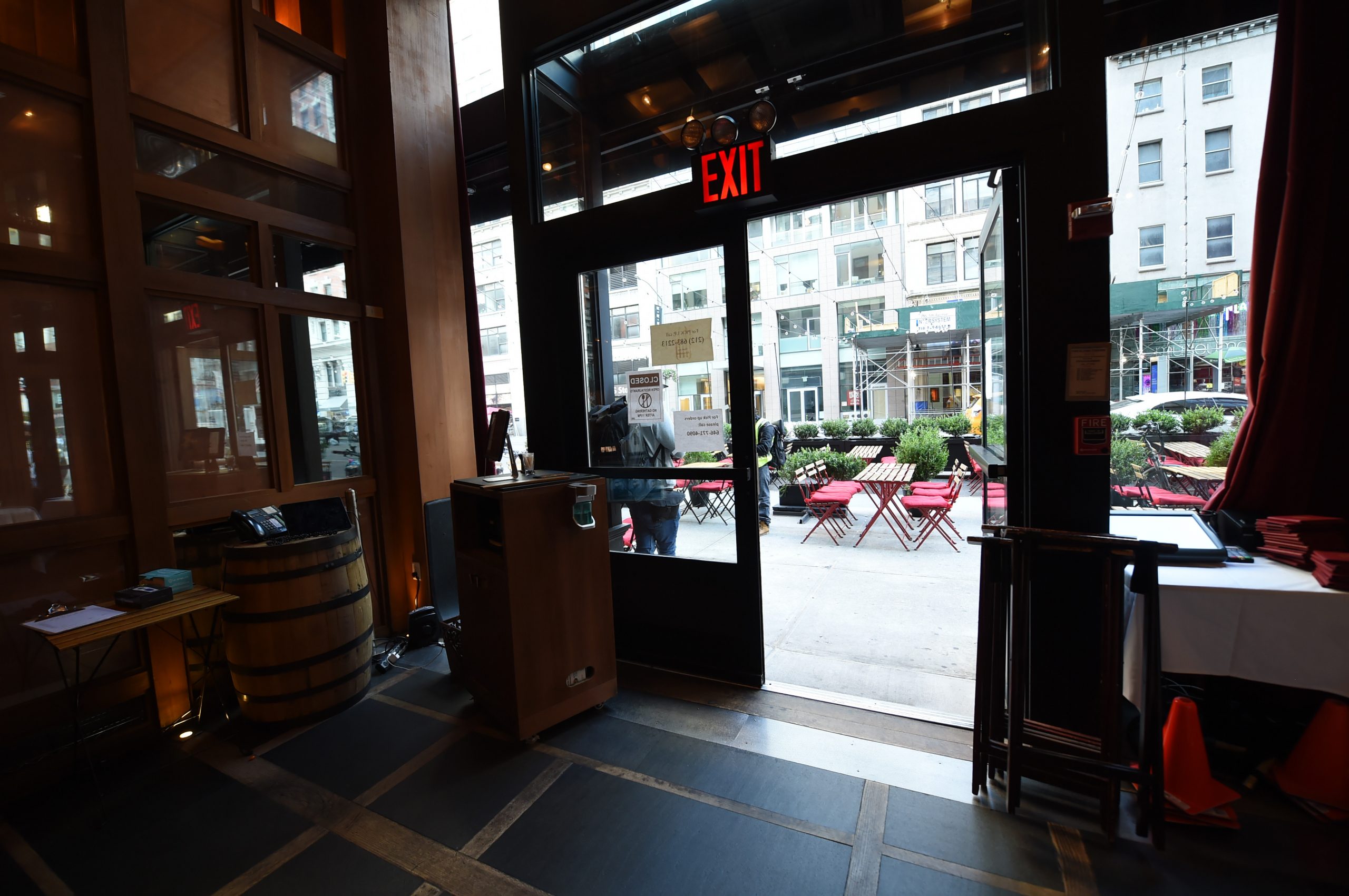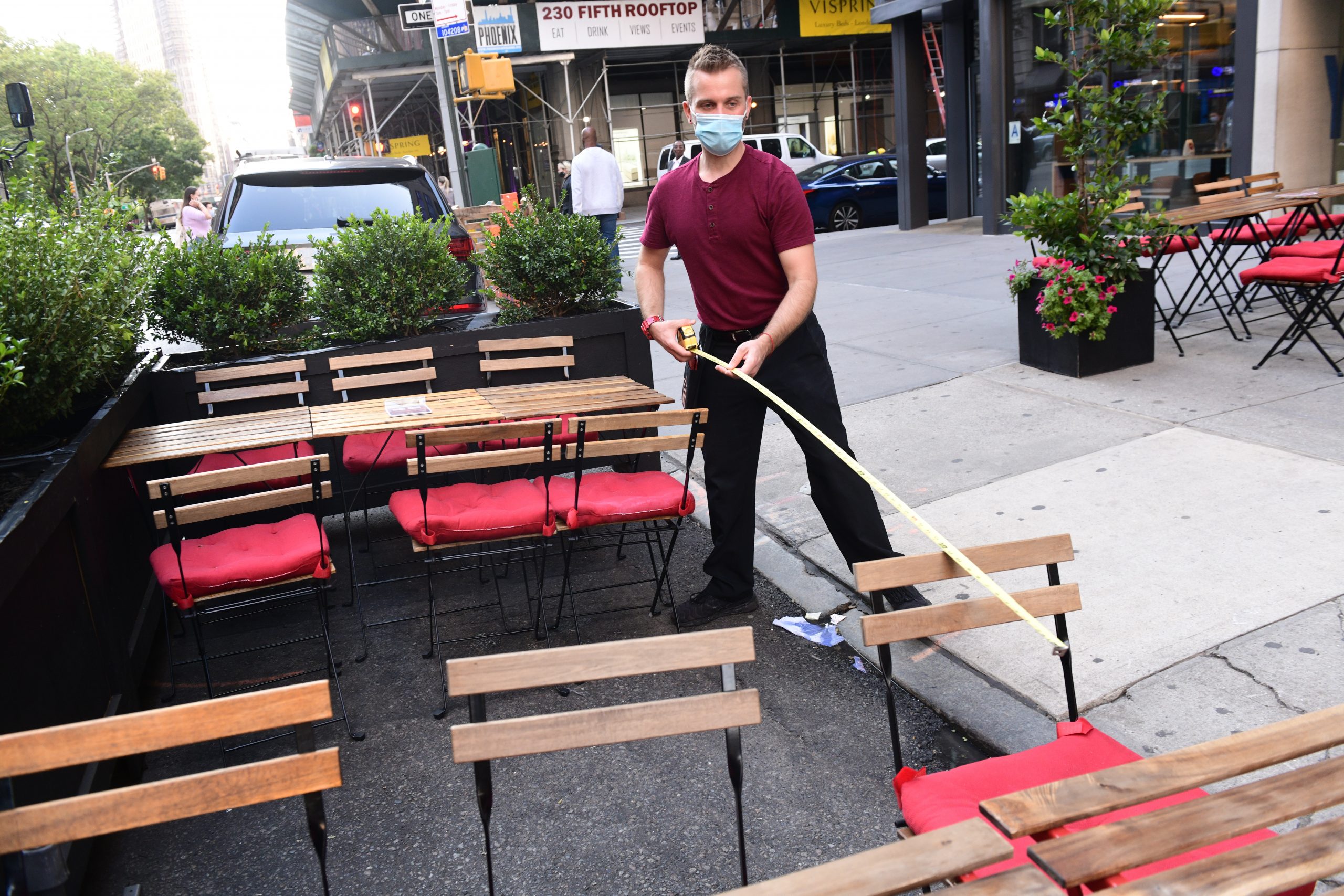Any way you slice it, New York City’s restaurants are in deep trouble.
Months of closure due to the COVID-19 pandemic, combined with restrictions that limited service to delivery/takeout or outdoor dining only, have left eateries across the five boroughs in a massive economic hole.
A new survey of 450 restaurant, bars and nightlife establishments confirms a dire picture of what even some of the most affluent businesses are facing as New York City slowly approaches allowing 24% indoor dining by Sept. 30.
The New York City Hospitality Alliance’s survey says that 87% of these businesses could not pay full rent in August while 34% were unable to pay any rent at all to their landlords spelling financial hardship no matter which way you cut it with back-rent still being owed under Governor Andrew Cuomo’s moratorium on commercial evictions.
What could be the antidote?
Andrew Rigie, executive director of the NYC Hospitality Alliance, claims there is not just one tincture involved in the cure.
Rent relief, indefinite expansion of outdoor dining, a guidebook to moving dining indoors, business interruption insurance coverage and passage of the Restaurants Act in Washington D.C. are some factors that will restore hope.
“Even before the pandemic when operating at 100 percent occupancy, these small businesses were struggling to stay open. Now we’re seeing widespread closures, approximately 150,000 industry workers are still out of their jobs, and the overwhelming majority of these remaining small businesses cannot afford to pay rent,” Rigie said.
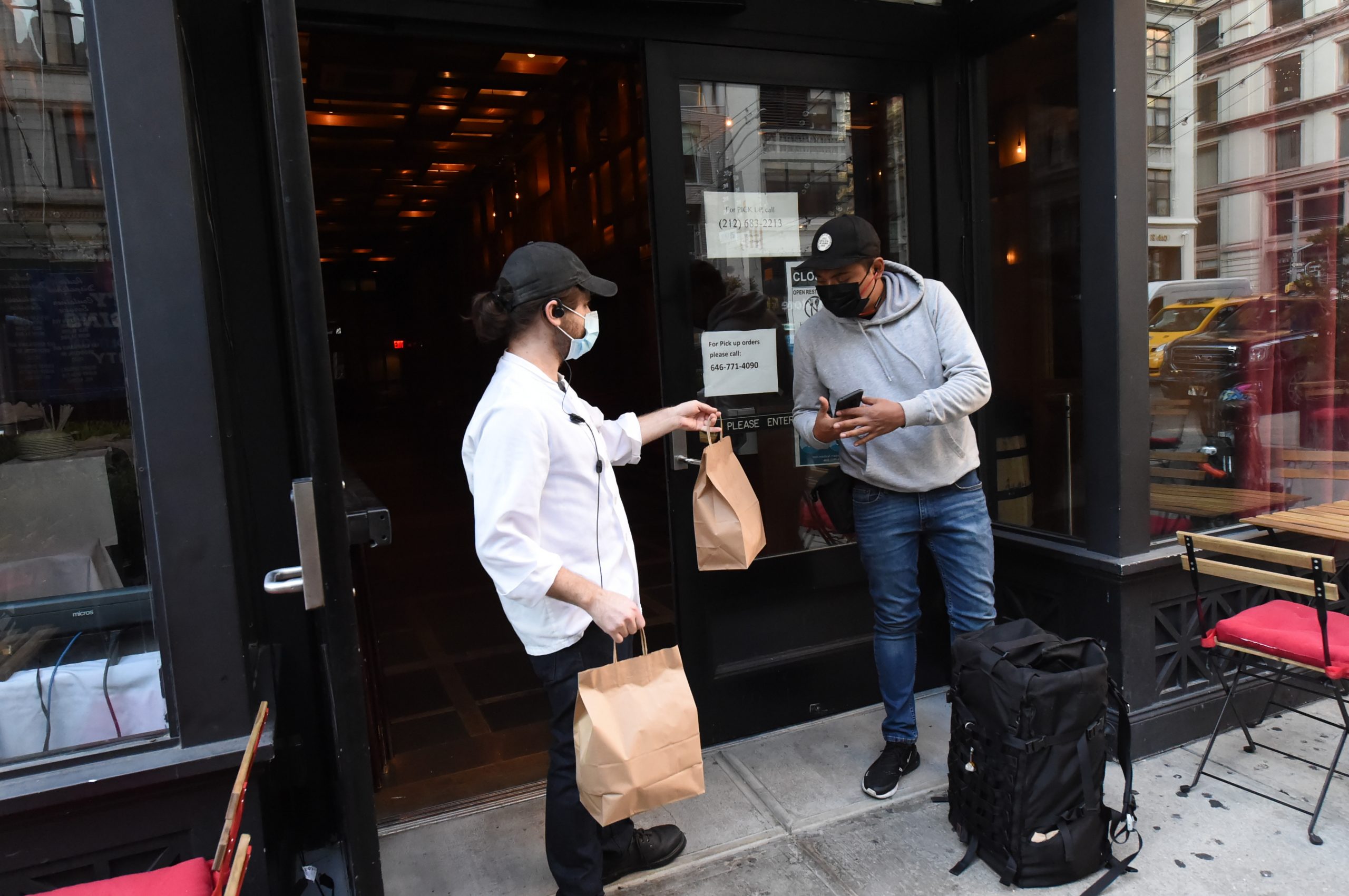
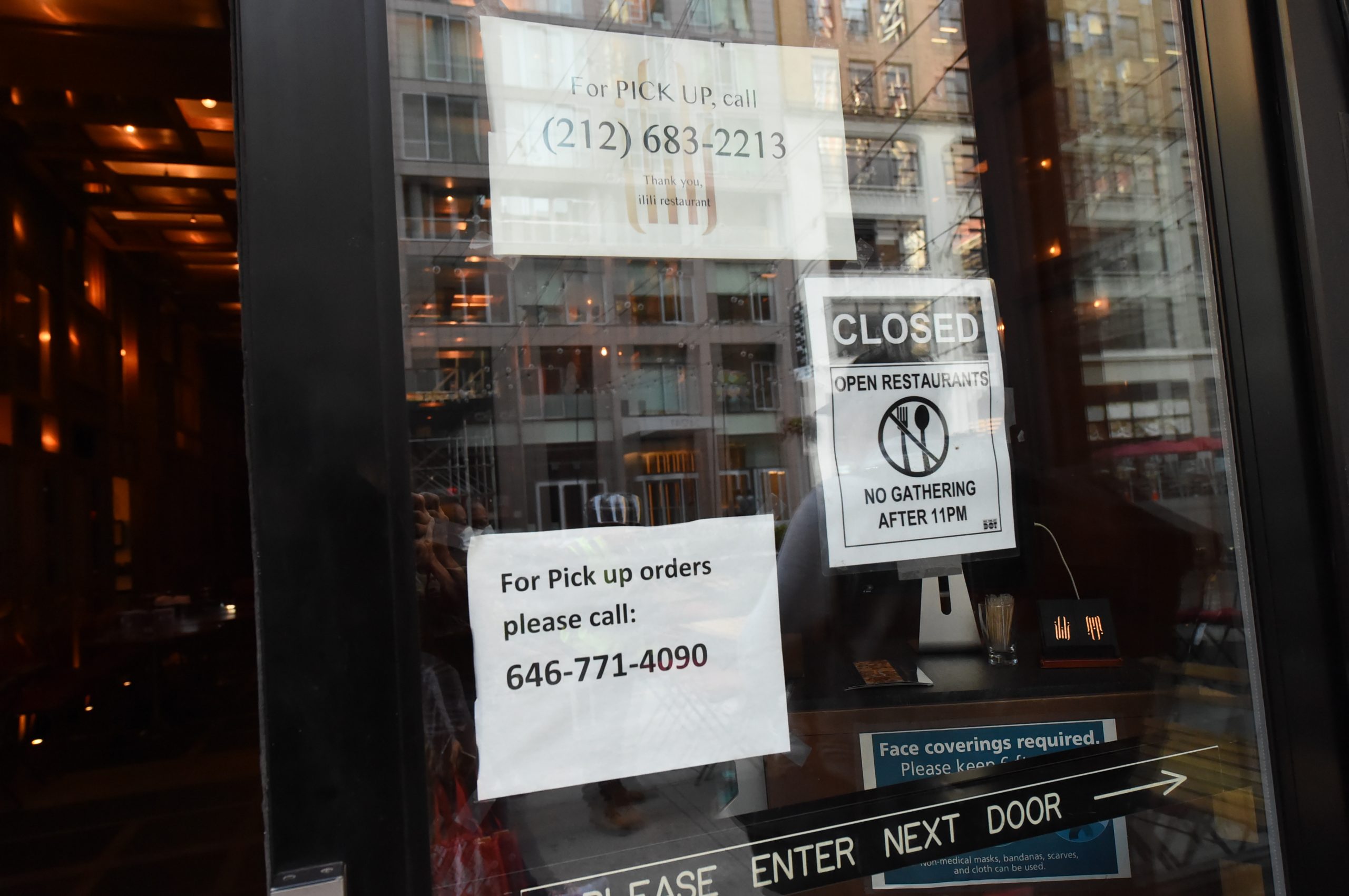
Up to 60% of landlords have not waived rent during the pandemic either, the survey found, and less than less than one-third of them waived more than 50%.
Ilili, located at 236 Fifth Ave. in Manhattan, near Madison Square Park, has proven to be no exception to this experience.
Proprietor Philippe Massoud told amNewYork Metro that his businesses survival is contingent on the extension of outdoor and indoor dining but that he is no stranger to hard times, having started his business during the 2008 financial crisis as a “baptism by fire.”
“In a sense, we are all operating as a not for profit businesses until this epidemic is over and we’re all doing what we can just sustain our businesses during these difficult times,” Massoud said. “Dining out is part of life in New York, you cannot live in New York and not be able to eat out. Some of the magic of New York is subdued now because we are all living under these stress conditions and many of businesses are shuttered.”
According to Massoud, business came to nearly a screeching halt in March until outdoor dining gave Ilili the chance the make some dough and hire 58 employees out of a usual full staff of 160. Massoud says he is lucky to have a landlord who is willing to negotiate for partial rent; if this they were held to amount agreed in the contract, Ilili would shut down immediately.
“We believe that if the 25% indoor dining is sustainable, we have a fighting chance of losing the least amount of money to last at least as long as possible. Now if we have to pivot back to delivery and take out only, then the situation will be substantially more dire because we have not found a way to operate without excessive losses,” Massoud added.
Massoud has been working to make indoor dining as safe as possible for patrons by supplementing the benefit of high ceilings with MERV-13 filters to reduce the chance of the virus’s spread.
View the August 2020 rent report at nycalliance.org.



